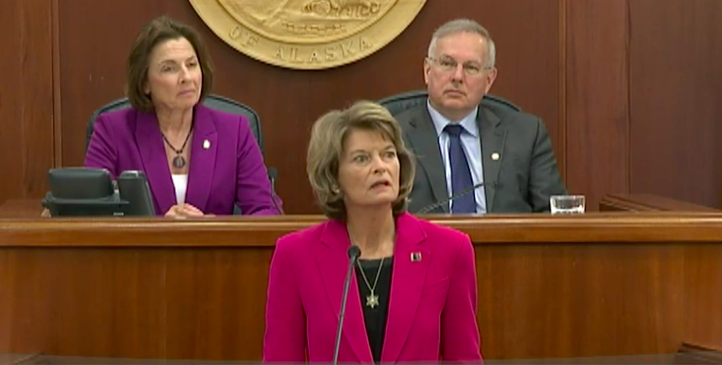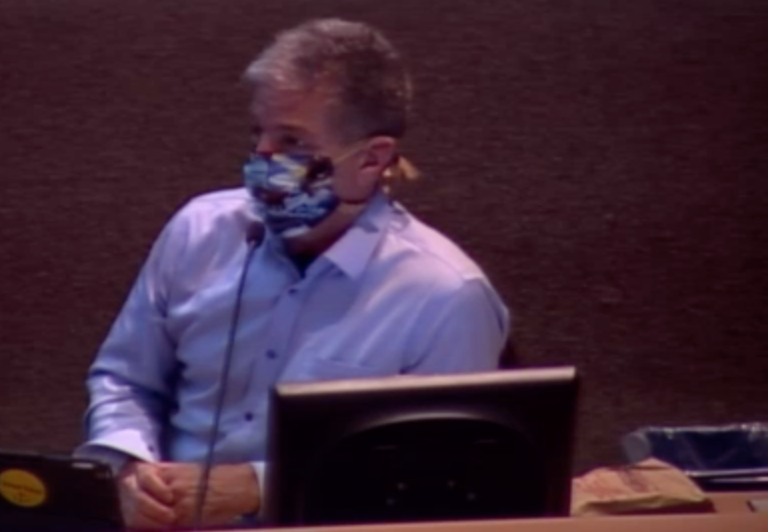ALASKA’S SHAPE-SHIFTER CANDIDATES FOR HOUSE, SENATE
Alaska Democrats are still beta testing the use of “great pretender” candidates – ones who say they are independent of a party, but who have only Democrat backing and are using Democrat campaign resources — and who will appear on the Democratic primary ballot.
The Democrats have been working the “fake independent” strategy with some success at the legislative level. They’ve got State Rep. Daniel Ortiz, an indie-Democrat, representing them in Ketchikan, which is normally a deep-red community. Ortiz is a popular retired school teacher, and although has no party, has been a reliable vote for the Democratic caucus. A dozen other stealth Democrats are making a run for state office across Alaska this year under the guise of “independent.”
Now, they’re also making a bold run for U.S. Senate and U.S. House with these shape-shifter candidates who declare to some voters that they are nonpartisan, while feasting at the table of the Democratic fundraising machine, and toeing the Democratic platform line.
Al Gross is the shape-shifter for Alaska Democrats for one of two Senate seats in a state where a large majority of voters are fiercely independent, but also prone to thinking that an independent-labeled candidate must be just like them – not actually tied to a party.
Gross is trying to game the voters. But when he appears on the ballot in November, it will be clear that he is a Democrat, as the ballot will tell voters how he managed to advance to the General Election — on the Democratic Party ticket.
Gross is a millionaire doctor who is able to self-fund his campaign, but has convinced the Democratic Party to give him access to the Democrats’ tools, such as the Act Blue fundraising app, and lists of donors and voters. They’ve inked a deal, that much is clear.
It’s going to be tough for Al Gross to beat Sen. Dan Sullivan, however. Sullivan is known as a hard-working Republican and Marine reservist with a sharp legal mind and good political instincts. He commits few unforced errors.
Gross, on the other hand, comes out of the far left as a small-town doctor who made a fortune as an orthopedic surgeon in the government stronghold of Juneau. He’s a gentleman fisherman, which means he has a commercial fishing permit and a nearly pristine gill netter that he takes out now and then from his idyllic Norwegian-burg port of Petersburg. Gross supports the expansion of Obamacare under the “Medicare for all” banner, and he is not shy about his complete distain for Republicans. He’s promised to “flip the Senate blue.”
Gross hired David Keith as his campaign manager last year; Keith is a political operative with a trail of behavioral problems serious enough that the Alaska Young Democrats wrote a letter to party leadership expressing dismay about his “inappropriate conduct and abusive behavior” while he worked for the Congressional Progressive Caucus Political Action Committee.
[Read: The David Keith chronicles]
The Alaska Young Democrats demanded to know “details on the hiring process of the campaign manager, with a justification for the hiring decision in the wake of such serious and public allegations.” They also wanted to see “a copy of the Progressive Caucus PAC Human Resources Investigation Report on said allegations.” To date, there has been no satisfactory answer given to the public.
As for the other Al — Alyse Galvin — she’s the shape-shifter independent who is also endorsed by Democrats, who uses the same Democrat talking points, and the same Democrat fundraising tools on her second attempt to unseat Dean of the House Don Young.
When she ran against Young in 2018 as a Democrat, Galvin famously scolded Young for shaking her hand too hard after a debate, a moment in Alaska political history that has became iconic — at least in Republican circles.
Now, she’s going the independent-Democrat route, hoping that something will happen to Don Young, who turns 87 this week. If lightning strikes, and voters forgive her liberal gaffs, the second time could be a charm.
Galvin’s campaign manager is Malcolm Phelan, another hired gun from out of state who for a short time was the campaign manager for a far-left Democrat running for Congress: Wendy Davis of Texas, who is a nationally famous abortion advocate trying to unseat Republican Rep. Chip Roy.
Both Senator Dan Sullivan and Congressman Don Young, on the other hand, hired lifelong Alaskans as their campaign managers — people who know and understand Alaskans. For Sullivan, it’s his former press secretary Matt Shuckerow, and for Young, it’s Truman Reed.










